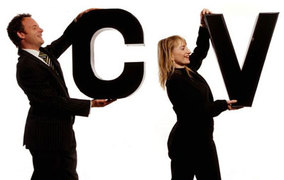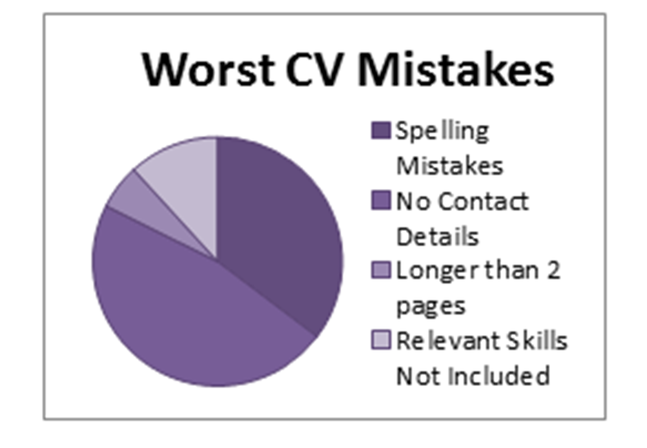
This chore is time consuming, boring, a memory test, a lesson in writing copy and marketing, and not the 'fun' kind of marketing I normally talk about! No two resumes are the same. so it can be hard to know what exactly to include - or not.
I've been fine tuning my CV lately, but last weekend presented another element to the job: I helped my Spanish speaking boyfriend turn his CV into something British employers might like to see - if and when he is eligible to work in the UK, and I wanted to blog about the comparison between the two documents.
This was quite a challenge! Of course, translation was required (made slightly more complicated by the lack of recollection of important dates). You cannot, with any translation, as far as I know, translate every word literally. Sentences just do not compute across languages in the same way. Luckily, his English is great, and my patience and grasp of the English language is improving every day!
Not only that, but the content of a Latino CV was quite different to what I'd become accustomed to here in the UK. The contact details still were present at the top of the page, but Costa Rican (Tico) CVs (or 'resumes' - very American!) also require the applicant to state their date of birth in this 'personal details' section - something I found very odd. This is not recommended for CVs in the UK, and is actively discouraged to protect applicants from possible ageism.
Another difference I discovered was that CVs in Costa Rica require a lot more detail as to what your education and subsequent qualifications/courses entailed. This, I have been assured by several recruitment agents and friends who work in HR, is not necessary in the UK. It's something to expand on in the interview, but I'm advised to explain briefly in one short sentence or bullet point exactly what the course content contained, if it is particularly applicable to the post you're applying to.
Expanding on the text can be useful, essential, even. This is relevant if you've been trained by a national body which represent themselves in your professional circles as an acronym (e.g. WRAP: Waste and Resources Action Programme). Charities aside, someone from outside that sector might not know how much of a high standing this organisation has, so give the company its full title and use brackets to house the acronym. This was very relevant to the session we spent on Sunday 'CV bashing'; many of the company/government/education acronyms commonly used in Costa Rica would mean nothing to the average (or more than average) Joe here in the UK.
The differences between the British and Tico education system made for quite a challenge to make it clear exactly what happened in my man's primary and secondary years. There's no GCSEs or A Levels, of course. If in doubt, I figure it could be good practice to say something like this, if you were translating a CV from English - Spanish:

Other things remained the same between our two types of CV; I'm pleased to announce that Word picked up on no more than zero spelling mistakes - result! Both of us have been careful to try to make sure our CVs as short as possible, mindful of the sad fact that many employers will simply skim the text for key ingredients. The Guardian Jobs website advocates this approach. Both of us have kept the sections tidy and well-formatted to make it easy to find, for example, the section on history of employment. We've also both taken the time to include a personal statement of sorts; the top of my CV has a very short paragraph summarising my personal profile (hard working, fast learner, keen professional and willing etc) and the bottom of my boyfriend's has a similar piece of text - albeit a little longer. This is because often covering letters are not used in applications in Costa Rica.
Finally, neither of us have photos posted on our CV, no beautiful or not so beautiful mugshot to let the employer know just what we look like. I thought this was a total no-no for any CV, but my year I spent living in Canada proved otherwise. The Canadians are keen to see photos - a little over the top, I feel, and too much information to be judged on... positively or negatively! Surely waiting to meet the person for the interview should be enough, without having to ask for a photo - unless of course, it's for a modelling role!
Top Tip for Translating a CV:
Get your CV up to scratch and find someone who writes well in the language you wish to record your achievements in.
If the language flows nicely and it's set out in a clear, logical format, you'll be well on your way to a good CV. Remember also that the value of having someone to proofread the document when you're done cannot be overstated. We writers often can't see the wood for the trees when we're writing out own content, be it a CV, a novel or a short story, and having a 'fresh' pair of eyes take a look can be invaluable - as I learned on publishing my first novel with a rude word on the very first page!
More resources to check out:
Take a look at '44 resume writing tips' from the geniuses at Daily Writing Tips for general and useful info on how to make your CV the one which stands out from the pile.
And if you're translating? Google 'translating CV into XXX' and see what comes up. Here's the French version, for example.
There are lots of online CV templates too, so (free!) help is at hand.
Here's hoping for onwards and upwards in professional circles for us both!
More from me next Friday - enjoy your week!
Lou x
Find me on Facebook
...And on Twitter
Born to be a Tourist
Image courtesy of Signet Resources and Arm

 RSS Feed
RSS Feed
